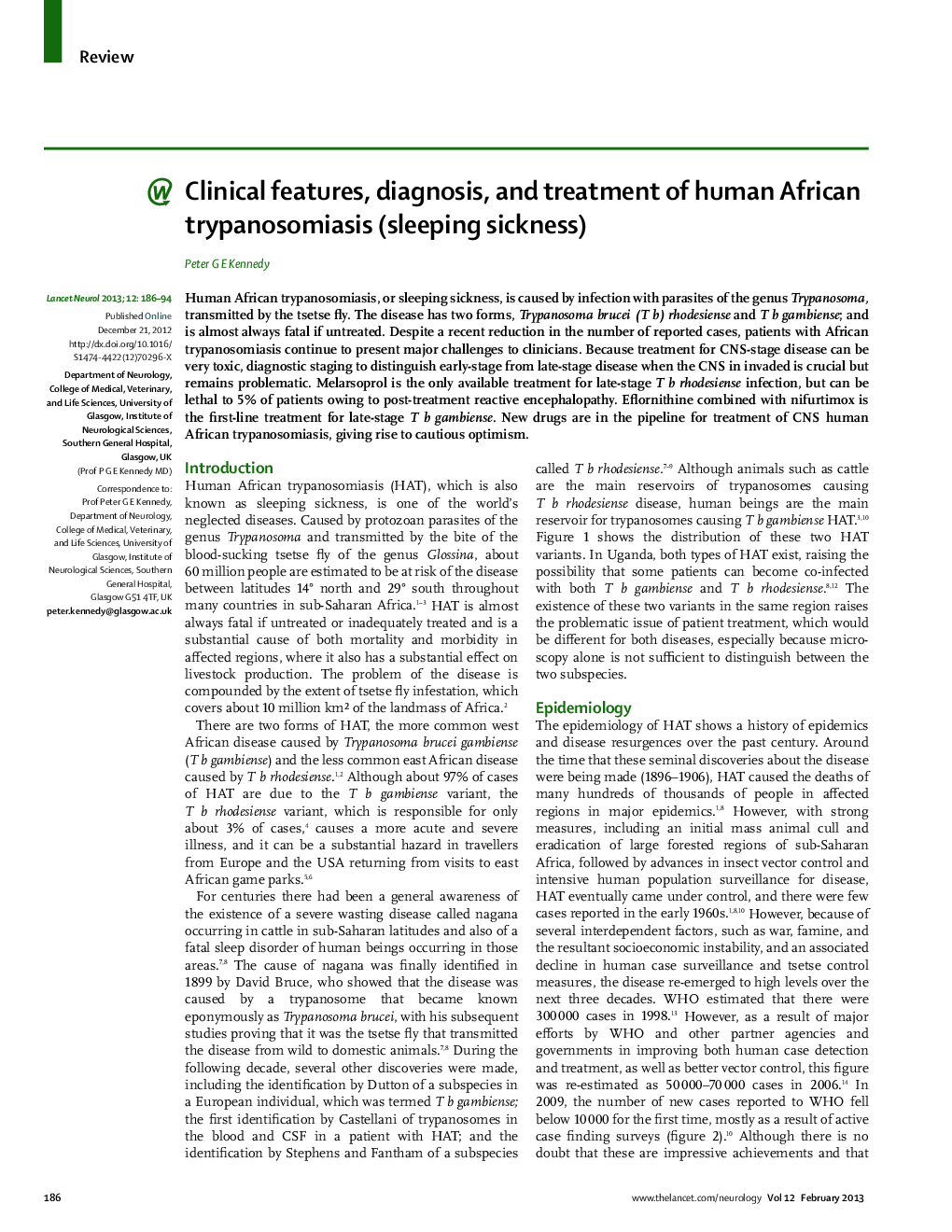| Article ID | Journal | Published Year | Pages | File Type |
|---|---|---|---|---|
| 3066486 | The Lancet Neurology | 2013 | 9 Pages |
SummaryHuman African trypanosomiasis, or sleeping sickness, is caused by infection with parasites of the genus Trypanosoma, transmitted by the tsetse fly. The disease has two forms, Trypanosoma brucei (T b) rhodesiense and T b gambiense; and is almost always fatal if untreated. Despite a recent reduction in the number of reported cases, patients with African trypanosomiasis continue to present major challenges to clinicians. Because treatment for CNS-stage disease can be very toxic, diagnostic staging to distinguish early-stage from late-stage disease when the CNS in invaded is crucial but remains problematic. Melarsoprol is the only available treatment for late-stage T b rhodesiense infection, but can be lethal to 5% of patients owing to post-treatment reactive encephalopathy. Eflornithine combined with nifurtimox is the first-line treatment for late-stage T b gambiense. New drugs are in the pipeline for treatment of CNS human African trypanosomiasis, giving rise to cautious optimism.
